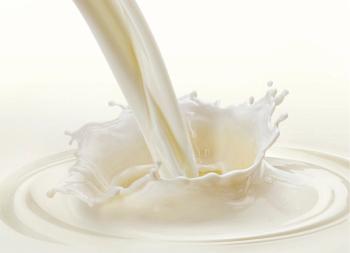
UC-II Collagen Reduces Cartilage Deterioration in Animal Study
In the rat-model study, Lonza’s UC-II collagen ingredient was found to improve function in injured knees and prevent excessive deterioration of articular cartilage.
Results from a new study1 published in the journal Osteoarthritis and Cartilage indicate that an undenatured native chicken UC-II collagen ingredient supplied by Lonza (Basel, Switzerland) may help to attenuate joint-health symptoms associated with osteoarthritis (OA), including joint pain and diminished joint mobility. In the rat-model study, Lonza’s UC-II collagen ingredient was found to improve function in injured knees and prevent excessive deterioration of articular cartilage.
Researchers posited that the collagen ingredient may offer support for the healing process following the onset of OA. They write that currently, glucosamine and chondroitin are the two nutraceuticals most commonly used to provide therapeutic and health benefits to patients suffering from osteoarthritis symptoms, but they add that collagen derivatives may also provide the nutrients required for cartilage repair and maintenance. They also note that collagen is the most prevalent component of the solid phase of articular cartilage, and thus, supplementation with collagen has been considered a key way of preventing damage to the articular cartilage over time and to support the healing process following the onset of OA. UC-II collagen has also recently been studied in human knee OA subjects, they write.
In this study, the researchers used a dosage of UC-II that represents the clinically testing human equivalent dosage of 40 mg/day to assess the following endpoints once the rats had been induced with OA symptoms: the weight-bearing capacity of rats’ front and hind legs, serum biomarkers of bone and cartilage metabolism, subchondral and cancellous bone, and cartilage pathology.
In total, 40 rats were used in the study. Twenty male rats underwent partial medial meniscectomy tear (PMMT) surgery to induce OA, to achieve a “rapid progression of degenerative changes in the articular cartilage of the medial tibial plateau.” Of these 20 rats, 10 received UC-II, and ten received the equivalent dosage of a vehicle. Ten additional rats underwent a “sham surgery,” while another group of ten rats served as the intact control group.
Immediately following the surgery, researchers administered the UC-II and vehicle groups a daily oral dose of UC-II at 0.66mg/kg (equivalent to the 40 mg/day UC-II used in clinical studies for a 60-kg human), or the vehicle, for a period of eight weeks. The researchers recorded rats’ body weight twice per week throughout the course of the study. They recorded rats’ dynamic weight bearing (DWB) measurements using a non-invasive system developed by Bioseb (Boulogne, France), which assessed rats’ “weight and surface area on all four feet.” These measurements were obtained once prior to the PMMT surgery, six days after the surgery, four weeks post-surgery, and once before euthanasia. The researchers also sent rats’ bone tissue samples to a laboratory for tissue processing. Two outside readers then analyzed the tissue samples for six specific parameters of bone degradation: cartilage degeneration score, osteophyte size, thickness of the cartilage matrix, cartilage matrix loss width, total cartilage degeneration width, and significant cartilage degeneration width.
Neither PMMT cohorts (the groups supplemented with UC-II or the vehicle) exhibited differences in serum chemistry parameters or biomarkers of bone and cartilage metabolism, but the researchers note that the rats from vehicle group exhibited the highest level of cartilage degradation. Rats in the UC-II group, meanwhile, exhibited significantly lower levels of cartilage degradation compared with the vehicle group. Likewise, rats in the vehicle group experienced significantly diminished weight-bearing capacity compared with the rats given UC-II, and an even more pronounced difference was observed between the vehicle rats compared with the control and sham-surgery groups. Finally, rats in the UC-II group experienced less cartilage degradation and cancellous, or spongy, bone tissue than did the rats in the vehicle group. The researchers concluded UC-II limited the extent of the cartilage damage in rats that underwent PMMT surgery, while also producing signs of recovery.
The researchers write that, “because the loss of bone in the operated limb was diminished by UC-II treatment, we hypothesized that the maintenance of knee functionality and load-bearing activity played a key role in preserving bone mass and structure in the tibia.”
In a press statement from Lonza, James Lugo, PhD, chief scientific officer, consumer health & nutrition, Lonza, explained how the results from this study further support the company’s research efforts behind its UC-II collagen ingredient. “This study represents a major milestone for the UC-II brand, and it validates our efforts to develop new paradigms for joint-health products for the aging population, while also addressing the needs of an expanding group of younger, active, health-conscious consumers,” he said. “These new results complement previously published clinical data on the UC-II ingredient, which demonstrate statistically significant beneficial effects for healthy subjects who develop knee-joint discomfort following strenuous exercise. This research also furthers our understanding of the mechanisms through which the UC-II brand elicits its beneficial effects.”
Also read:
References:
- Bagi et al., “Oral administration of undenatured native chicken type II collagen (UC-II) diminished deterioration of articular cartilage in a rat model of osteoarthritis (OA),” Osteoarthritis and Cartilage. Published online ahead of print September 6, 2017.
Newsletter
From ingredient science to consumer trends, get the intel you need to stay competitive in the nutrition space—subscribe now to Nutritional Outlook.



